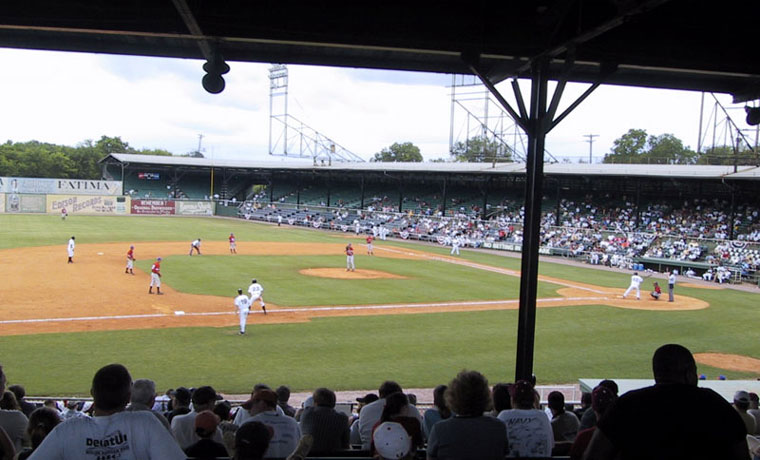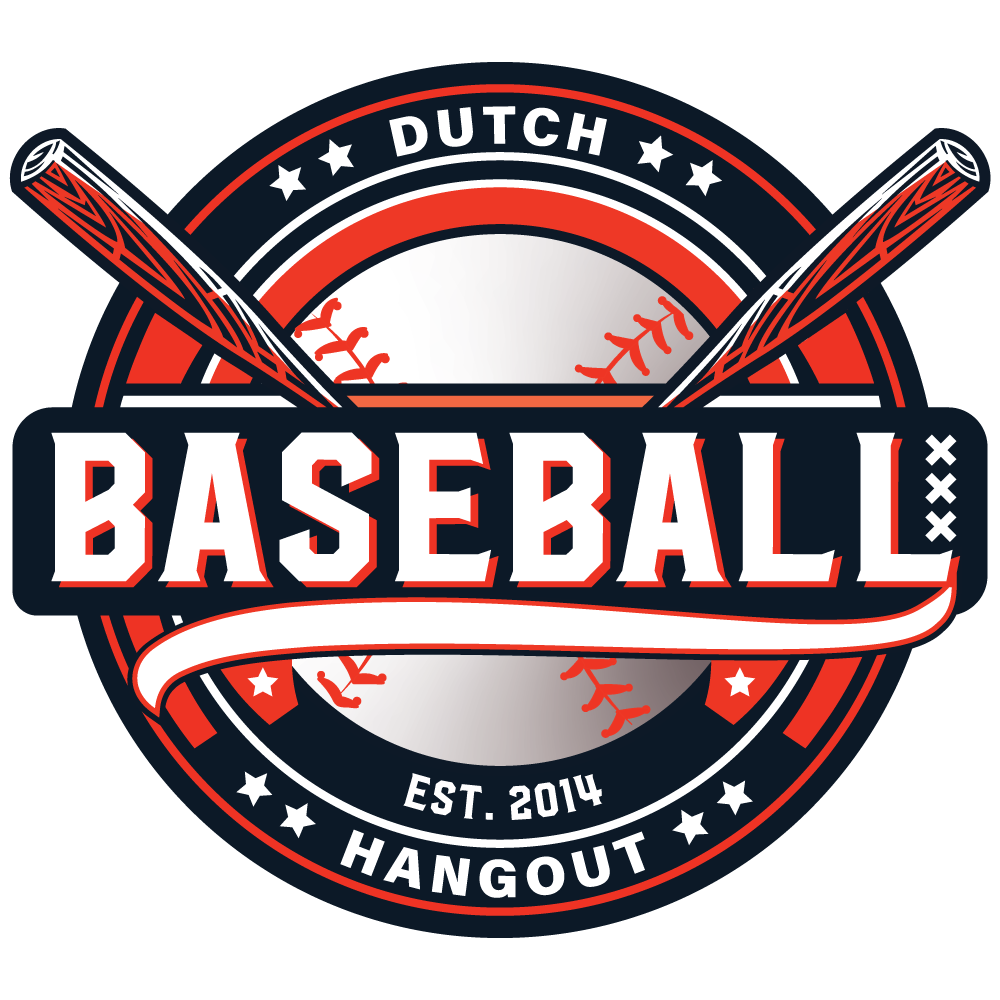Rickwoodfield, Birmingham AL
 Rickwood Field is the oldest still standing ballpark in the US where professional baseball is played. The ballpark opened its doors in 1910 and was home for the Birmingham Barons and Birmingham Black Barons.
Rickwood Field is the oldest still standing ballpark in the US where professional baseball is played. The ballpark opened its doors in 1910 and was home for the Birmingham Barons and Birmingham Black Barons.
Industrialist and owner of the Barons ordered to build the stadium.
Allen Harvey “Rick” Woodward, chairman of Woodward Iron Company and grandson of pioneer Birmingham industrialist Stimpson Harvey Woodward, purchased a majority share of the Birmingham Coal Barons baseball team from J. William McQueen in 1909 while he was still in his 20s. Immediately he began planning a grand showplace for his new team. He contacted Connie Mack for advice on the details, including the field dimensions. He settled on Forbes Field in Pittsburgh, Pennsylvania and Shibe Park in Philadelphia, Pennsylvania) as the models for the new park. He purchased land in the West End neighborhood of Birmingham from the Alabama Central Railroad. The $75,000 structure was designed by Southeastern Engineering Company of Birmingham (a short-lived subsidiary of Pittsburgh’s General Fireproofing Company) and completed during the summer of 1910. The 12.7 acre (51,000 m²) park was flanked along the basepaths by concrete and steel stands. A tile-roofed cupola on the roof behind home plate provided space for the announcer and the press. Woodward named the field after himself, using his nickname and the first part of his last name.
Woodward’s team was sponsored by many local businesses. When the park opened on August 8 1910, all businesses in town closed to give people the opportunity to attend the game. 10,000 fans passed the gates that day.
Over the years, Rickwood Field would have sellout crowds on a regular basis, both for the Barons and the Black Barons. Both teams played at Rickwood Field on alternate weekends.
In those days baseball was still segregated. Black baseball fans were allowed to watch games of the (white) Barons, but were forced to sit in a section of the right field bleachers, which was the case as well when white fans wanted to attend games of the Black Barons.

Black baseball fans were only allowed to sit at the section right next to the right field wall, during (white) Barons games.
In 1936 four steel light towers were installed to make night games possible.

In 1938 Woordward sold the park to local business man Ed Norton, who sold the park to the Cincinnati Reds in 1940.
From that year on to the final game that the Barons played at Rickwood Field, the park had several different owners.
In 1944 a ladies rest room was added and in 1949 a small restaurant was created in the entrance building. In 1950 additional box seats were installed, necessitating the relocations of the dugouts farther down the baselines. In 1958 Al Belcher gained a majority share and control of the park. In 1964 General Manager Glynn West purchased 1000 wooden seats from New York’s Polo Grounds and installed them at the park. Belcher sold Rickwood Field in 1966 to the City of Birmingham, but retained a lease for the remainder of that year. Between 1979 and 1980 the wooden seats were replaced with plastic seats in the box areas and metal bleachers under the grandstands.
After the 1975 season, Rickwood field would have no tennant when the Birmingham team moved to Chattanooga to become the Chattanooga Lookouts. In 1981 Minor League Baseball returned to Birmingham when the Montgomery Rebels moved to Birmingham and named themselves after the previous Barons teams.
The final regular game was played on September 9 1987. The next year, the Barons would play their home games in Hoover, a suburb of Birmingham at Hoover Metropolitan Stadium.
Since 1992 the ballpark has been under the care of the Friends of Rickwood who are restoring the facility to its former glory. They also host frequent amateur, police and semi-pro games and open the gates to visitors who can walk in and explore the grandstands or run the bases.
Since 1996, Rickwood Field has hosted the Barons for a throwback game in which both teams wear period uniforms. Each match honors a different era in Birmingham baseball history. Ballpark enthusiasts from across North America migrate to Rickwood to attend this AA regulation game, named the “Rickwood Classic,” every season. Many consider this game the best opportunity to experience a regulation ballgame in an historic ballpark that remains true to its original and traditional appearance. Those involved – the Barons franchise, Friends of Rickwood, and fans – fully believe that this experience in the sacred baseball cathedral is among the most underrated baseball events.
Scenes from the movies Cobb (1994) and Soul of the Game (1995) were filmed at Rickwood. Those productions contributed to the recreation of the scoreboard and press-box and the addition of 1940s period style advertisements on the outfield fence. Some of these retro-style ads have been sponsored by real Birmingham businesses, including a section sponsored by the descendants of Rick Woodward that advertises long-gone Woodward Iron Co. The outfield signs were designed by Ted Haigh, a Los Angeles-based graphic designer and executed by Skidmore Sign Company of Birmingham. In May 2012, scenes from the movie 42:The Jackie Robinson Story (2013) were also filmed at Rickwood Field.
As of 2005, the Friends of Rickwood have spent around $2 million refurbishing the grandstands, press-box, locker rooms, roof and main entrance to the park. Future plans include establishing a Museum of Southern Baseball.
View from the first base dug out


The entrance building

Rickwood Field has the official status of a landmark.


Everything is done to give this ballpark an old time feel. Even installing old commercial signs.
